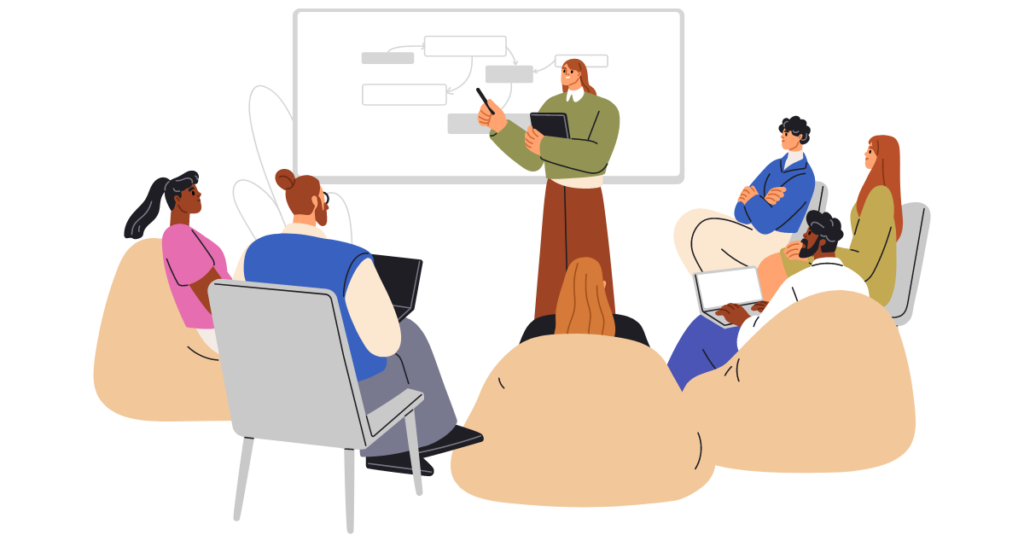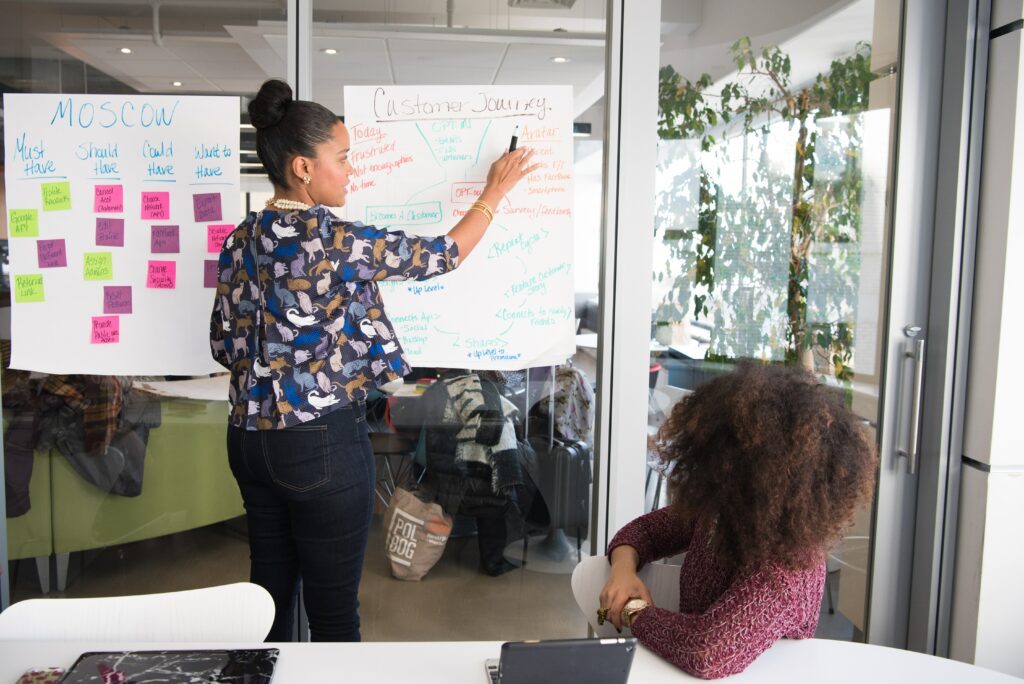Corporate mentoring: best practices
Corporate mentoring is a powerful tool for the professional and personal development of employees. It offers personalized support, promotes knowledge transfer and strengthens the corporate culture. But why is it so important, and how can it be implemented effectively? This article helps you answer these essential questions.

Why is corporate mentoring important?
In-company mentoring has many benefits for both employees and the organization. Here are some key reasons why mentoring is essential:
Skills and talent development
Mentoring enables employees to acquire new skills and improve their performance. By working with experienced mentors, protégés can benefit from practical advice, feedback and ongoing support.
Strengthening corporate culture
Mentoring fosters a culture of collaboration and knowledge sharing. It helps to transmit the company’s values and practices to new employees, thus facilitating their integration.
Increased motivation and commitment
Employees who participate in mentoring programs often feel more valued and supported. This can increase their motivation and commitment, leading to better performance and reduced staff turnover.
How do you set up a mentoring program in your company?
Clearly defining program objectives
The first step in setting up a mentoring program is to clearly define your objectives. Do you want to improve employee skills, facilitate the integration of newcomers or prepare future leaders? Setting clear objectives will help you structure the program and measure its success.
Selecting mentors and protégés
Choosing the right mentors is crucial to the program’s success. Mentors must be experienced employees with a good knowledge of the company and strong communication skills. Protégés can be new employees, high-potential talents or employees in need of specific development.
Set up a matching process
A good match between mentors and protégés is essential to the success of mentoring. Use criteria such as skills, career goals and personalities to create compatible pairs. That’s how fruitful business relationships are forged!
Establish clear objectives and expectations
From the outset, it’s important to define the objectives and expectations of the mentoring relationship. Mentors and protégés should discuss their expectations, the skills to be developed and the goals to be achieved. This helps maintain direction and measure progress throughout the program.
Supervising and monitoring the program
To ensure the program’s success, it is essential to provide regular supervision and follow-up. Hold regular meetings to assess progress, offer additional guidance and adjust targets if necessary.
At this point, let’s take a look at the benefits of mentoring in the workplace:
- Skills development
- Strengthening corporate culture
- Increased motivation and commitment
- Facilitating the integration of new employees
- Preparing future leaders
What are the challenges of corporate mentoring?
Mentoring without mentors is not mentoring: so how do you find the right mentors?
One of the main challenges is to find enough qualified and available mentors. Mentors must not only be experienced, but also motivated and able to devote time to their protégés. Don’t hesitate to use your network of friends and former colleagues to find the right mentors.
Corporate mentoring also means anticipating and managing expectations
Managing the expectations of mentors and protégés is crucial. Sometimes protégés may expect quick results, or mentors may underestimate the commitment required. Setting realistic expectations from the outset can help prevent disappointment.
Building loyalty and maintaining commitment to your corporate mentoring programme
Keeping participants engaged throughout the program can be a challenge. Program managers must remain proactive by offering support, organizing activities and celebrating successes to maintain motivation.
Corporate mentoring is a powerful strategy for developing employee skills, reinforcing corporate culture and increasing motivation and commitment. By following best practices and overcoming challenges, companies can implement effective mentoring programs that will benefit all levels of the organization. Adopt mentoring to create a collaborative and supportive work environment, and set your company up for long-term success.
Good to know! quarksUp is an HRIS solution for managing the entire employee cycle.
Thanks to this HR tool, everything can be done online. As an HR manager, you’ll be in charge of all our employees’ digital activities. With its modular offer, quarksUp intervenes from recruitment to employee off-boarding.
You may also be interested in 😊

GPEC: Definition and implementation tools
What is GPEC (Gestion Prévisionnelle des Emplois et des Compétences) and how can it be implemented? quarksUp, expert in HRIS, answers your questions.

Annual appraisal interview: objective, grid
The annual appraisal interview is an opportunity to take stock of performance. quarksUp, expert in HRIS, guides you in preparing your objectives and evaluation grids.

